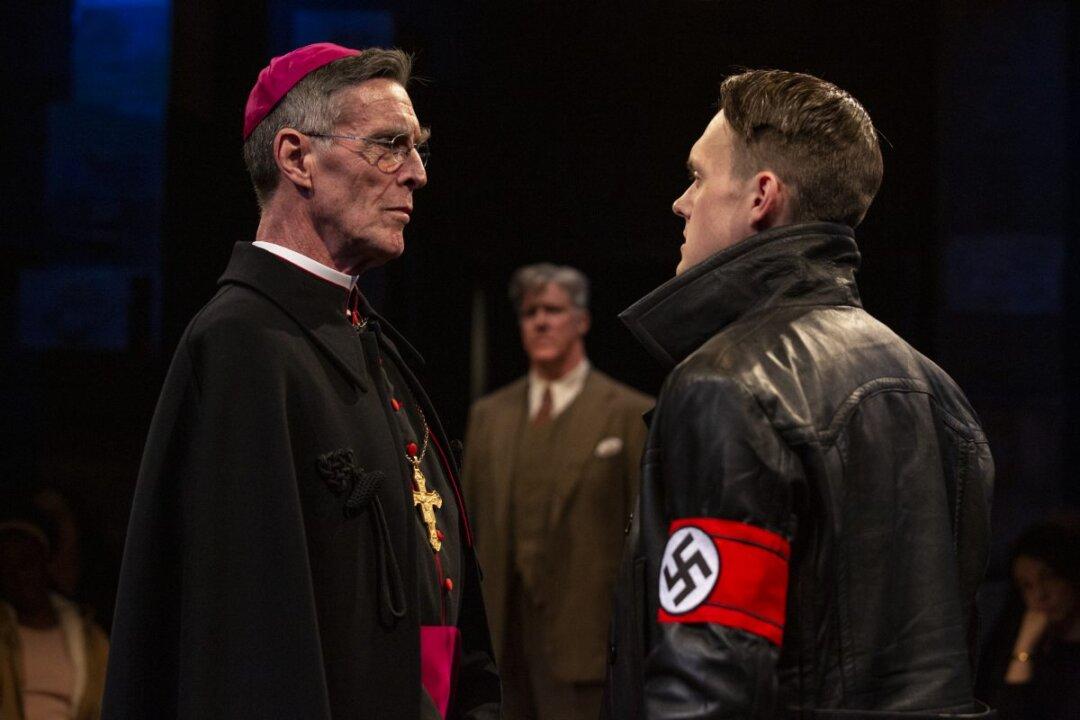NEW YORK—No one’s life is worth more or less than any other’s is a statement that’s the central message of Stephen Unwin’s drama “All Our Children.” This quietly unnerving work is having its American premiere at the Sheen Center for Thought & Culture.
It’s early January, 1941, and as Germany moves into the New Year, the majority of the country’s people seem to be roundly behind Adolph Hitler and the National Socialist German Workers (also known as the Nazi) Party. They’re convinced that any changes deemed necessary by those in charge are strictly for the greater good of the country.





